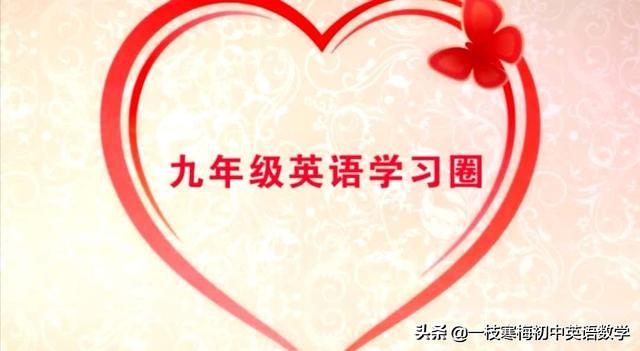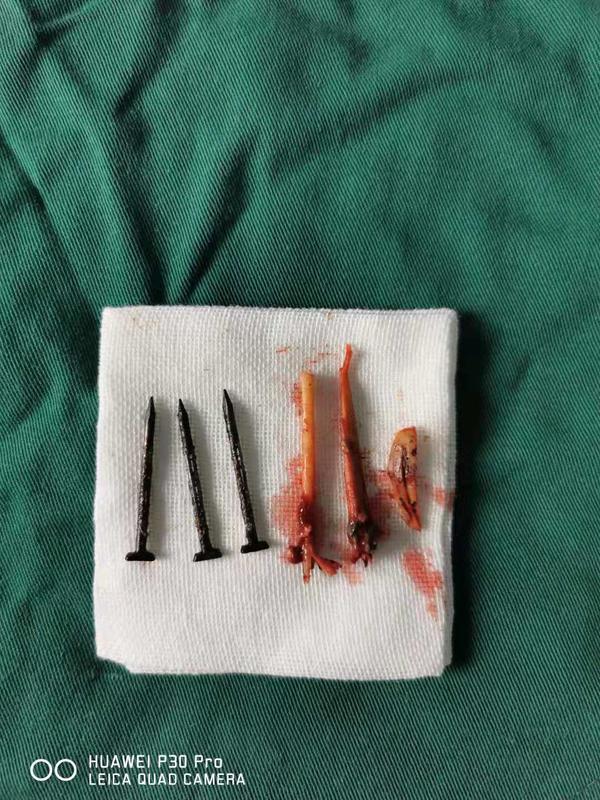
Unit 5 What are the shirts made of?
chopstick /tʃɔpstik/ n. 筷子p.33
coin /kɔin/ n.硬币 p.33
fork /fɔ:k/ n.餐叉,叉子p.33
blouse /blauz/ n.(女士)短上衣;衬衫p.33
sliver /silvə/ n. 银,银器;adj.银色的 p.33
glass /glas/ n.玻璃 p.33
cotton /kɔtn/ n.棉;棉花p.33
steel /sti:l/ n. 钢;钢铁p.33
fair 展览会;交易会
environmental adj. 自然环境的,有关环境的
grass/gras/ n. 草;草地 P.34
leaf /li:f/n(pl. leaves /li:vz/)n. 叶,叶子
produce /prədju:s/,v. 生产;制造;出产 p.34
widely /waidli/adv. 广泛地;普遍地 p.34
process /prəuses/, v. 加工;处理 p.34
pack v. 包装;装箱
product /prɔdʌkt/ n.产品;制品p.35
France /fra:ns/,/fr{ns/ 法国 p.35
no matter 不论;无论 p.35
local /ləukl/ adj. 当地的;本地的 p.35
brand /brænd/ n. 品牌;牌子 p.35
avoid /əvɔid/ v. 避免;回避 p.35
handbag /hændbæg/ n. 小手提包 p.35
mobile /məubail/, /məubl/ a.可移的;非固定的
everyday adj. 每天的;日常的
boss n. 老板,上司
Germany /dʒə:(r)məni/ n. 德国 p.36
surface /sə:(r)fis/ n.表面;表层 p.36
material n.材料;原料
postman /pəustmən/ n. 邮递员 p.36
cap /kæp/ n(.尤指有帽舌的)帽子 p.36
glove /glʌv/ n(分手指的)手套 p.36
international/intə(r)næʃnəl/ adj. 国际的 p.37
competitor /kəmpetitə(r)/ n.参赛者;竞争者 p.37
paint /peint/v. 用颜料画;刷漆 p.37
its /its/adj. 它的 p.38
form /fɔ:(r)m/ n. 形式;类型 p.38
clay /klei/n. 黏土;陶土 p.38
balloon /bəlu:n/ n. 气球 p.38
scissors/sizə(r)z/ n. (pl.) 剪刀p.38
lively/laivli/ a. 生气勃勃的;(色彩)鲜艳的p.38
fairy /feəri/, /feri/tale /teil/ n.童话故事 p.38
heat /hi:t/n. 热;高温 p.38
polish /pɔliʃ/ v. 磨光;修改;润色 p.38
complete /kəmpli:t/ v. 完成 p.38
Korea /kəri:ə/ 朝鲜;韩国p.33
Switzerland/switsə(r)lənd/ 瑞士p.35
SanFrancisco /sæn frənsiskəu/
圣弗朗西斯科(旧金山,美国城市) p.35
Pam /pæm/ 帕姆(女名) p.34
【重点短语】1.be made of 由...制成的(表示制成成品后,仍可看出原材料是什么)
2.be made from 由...制成的(在成品中已无法辨认原材料)
3.be known for 以......闻名
4.be used for 被用于......
5.no matter 不论;无论
6.be covered with 用...覆盖
7.as far as I know 据我所知
8.by hand 用手
9.be good for 对……有益
10.on the last friday of each month
最后一个星期五
11.be good at 擅长
12.make high-technology products
制造高科技产品
13.the earth’s surface 地球表面
14.many different kinds of 许多不同种类的
15.fly a kite 放风筝
16.such as 例如
17.according to 根据 按照
18.ask for help 请求帮助
19.a symbol of ……的象征
20.put…on… 把……放在……上
21.be used for 被用于做……
22.good luck 好运
23.at a very high heat 在高温下
24.be made in 在……制造的
25.be famous for 以……著名
26.on the sides of mountains 在山腰上
27.traffic accident 交通事故
28.a kite festival 风筝节
29.be from 来自
30.turn ……into ……把……变成……
【重点句型】1. What are the shirts made of?
衬衫是由什么制成的?
2. It was made in Thailand.
它是在泰国制造的。
3. No matter what you made buy,you might think those products were made in those countries.
无论你买什么,你会认为那些产品是在那些国家制造的。
4. The international kite festival is held in April every year.
国际风筝节是在每年的四月举行。
5. Laura didn’t know that kite flying could be so exciting.
劳拉不知道放飞风筝可能会如此令人兴奋。
词汇精讲1. everyday; every day(1)everyday作形容词,意为“每天的,日常的,平日的”。仅用在名词之前做定语,不能单独使用。例如:
everyday life 日常生活
everyday English 日常英语
everyday activities 日常活动
everyday clothes 平日里穿的服装
(2)every day 是副词短语,意为“每天”,相当于each day, 通常用作句子的时间状语从句。例如:We should eat vegetables and fruits every day.我们应该每天都吃蔬菜和水果。
My parents ask me to go to bed before 11:00 every day.
我的父母要求我每天11:00之前睡觉。
2. fair(1)fair作形容词,意为“公平的,合理的”。
There must be fair play whatever the competition is.
不管是什么样的竞赛都必须公平合理。
(2)fair作形容词,意为“自然的,理所当然的”。
It’s fair enough to ask your close friends to help.
向你的好朋友求助,这是很自然的/理所当然的。
(3)fair作形容词,还意为“相当大(多、远)的”。
They’ve made a fair amount of money.
他们赚了相当大的一笔钱。
(4)fair作形容词,也意为“(肤色)浅的,(头发)金色的”。
Her daughter has big eyes and fair hair.
她的女儿长着大大的眼睛,金色的头发。
【拓展】
fair作名词,意为“(定期)集市、庙会;商品展览会、博览会”。
He brought his piglets to the fair.
他把小猪带到集市去卖。
A book fair is to be held next month.
下个月将举行书展。
3. avoid(1)从意思上看,可表示“避开”或“躲避”(keep oneself from)某人或某物;也可表示“防止”(prevent)某事的发生。例如 :
Try to avoid accidents.
尽量防止发生事故。
I avoided him as much as possible.
我尽量避开他。
You should avoid such mistakes.
你应当避免这样的错误。
(2)从用法上看,其后可接名词或代词作宾语,也可接动名词作宾语,但是不能接不定式作宾语。例如:
他避而不答我的问题。
正:He avoided answering my questions.
误:He avoided to answer my questions.
要想不受影响是不可能的。
正:It was impossible to avoid being affected.
误:It was impossible to avoid to be affected
4. be famous for(1)be famous for表示人以某种知识技能,作品或特征而出名;表示某地以某种特产或特征出名;或表示某事以其内容、特征、价值等而被人所知。例如:
He is famous for his skill in playing football
他因球艺而出名。
The area is famous for its green tea.
这个地区以产绿茶而著称。
【拓展】
be famous as 表示“以……而出名”的意思,或确切地说是“作为……而出名”的意思,主要是表示人以某种身份或职业而出名,或表示某地方作为什么产地或地方而出名,或表示某事物以某种形式而出名。例如:
Mark Twin was famous as a children-story writer.马克·吐温作为儿童故事作家而著称。
This book is famous as a reference book. 这本书作为参考书而出名。
5. produce; product; production(1)produce 作动词,表示“生产,制造,出产”的意思;例如:
Tea is produced in many different areas in China.中国很多地方都出产茶叶。
produce作名词,主要指农产品,是一个不可数的集合名词。例如:
the agricultural produce农产品
the native produce土特产品
We need some fresh produce. 我们需要一些新鲜的农产品。
(2)product 主要指工业产品,也可指农产品,是可数名词。例如:
farm product农产品
Petrol is the most important product of many Middle-East countries.
石油是许多中东国家最重要的产品。
【注意】有时用于引申义。例如:
He saw man as the product of society.
他把人看作是社会的产物。
(3)production 通常不表示具体的产品,它主要指生产这一动作或过程,制作,摄制(电影、戏剧等),是不可数名词;例如:
The company is famous for the production of small cars.这家公司以生产小型汽车闻名。
【注意】production 除表示“生产”外,还可指艺术作品,此时为可数名词。例如:
The theme of his late productions was life and death.
他晚期作品的主题是生与死。
production 还可以表示产量,是不可数名词。
the production of wheat小麦生产产量
The production has increased产量已增加。
6. be good forbe good for意为“对……有好处,对……有益处”,介词for后接名词或代词。其反义词为be bad for,意为“对……有害处”。例如:
Junk food is not good for our health.
垃圾食品对我们的健康没有好处。
Smoking is bad for you. 吸烟对你有害。
【拓展】
(1) be good to“对……好”,其反义短语为be bad to“对……不好”。介词to之后一般接表示人的名词或代词。例如:
She is very good to us. 她对我们很好。
The boss is bad to his workers.
那个老板对他的工人不好。
(2) be good at“在……方面擅长”,介词at后面常接名词、代词或动词-ing形式,同义短语为do well in。例如:
She is good at English and Chinese.
= She does well in English and Chinese.
她擅长英语和汉语。
(3)be good with“和……相处得好;擅于和……相处”。例如:
Are you good with children?
你和孩子们相处得好吗?
7. turn … into ….(1) turn … into…表示“把……变成…… ; 使……变成……”。例如:
Can you turn this piece of paper into a flower?
你能够把这张纸变成一朵花吗?
Please tell me how to turn the water into ice.
请告诉我怎么把水变成冰。
【拓展】
turn into表示“转变;变成;成为”。例如:
We think he’ll turn into a top-class player.
我们认为他会成为一流的选手。
I think I have got to stop or I might turn into a machine.
我想我得停下来了,否则我就会变成一台机器。
8. special(1)special作形容词,意为“特殊的,特别的,专门的(反义词:ordinary)”,强调事物特有的性质、性格或专门的目的、用途。
You must have special permission to enter this room.
你必须得到特许才能进这个房间。
(2)especial 作形容词,意为“特别的,主要的,突出的(反义词:common)”,强调的是重要性,有“尤其、特别”之意。
He solved the problem of especial importance.
他解决了非常重要的问题。
9. both … and …(1)both...and...意为“……和……都……”; “不仅……而且……”,连接两个并列的词或短语,不能用来连接句子。作主语时,谓语动词用复数形式,不受“就近原则”的限制。例如:
Both Li Ming and Wei Hua are good at English.
【拓展】
both...and...相对应的连词结构式neither…nor…表示“既不……也不……”。作主语时,谓语动词受“就近原则”的限制。例如:
Neither you nor I am a student.
你和我都不是学生。
句式精讲1. What are the shirts made of?
(1)be made of /from意为“由……制成”。前者成品可以看出原材料,后者是成品看不出原材料的。例如:
The chair is made of wood.
椅子是由木头制成的。(能看出原材料)
Paper is made from wood.
纸是由木头制成的。(看不出原材料)
(2)be made up of… 相当于consist of…(由……组成)。例如:
Our country is made up of 56 nations.
我们的国家是由56个民族组成的。
(3)be made in 意为“在……(地点)制造”
be made by意为“由某人制作”或“用什么方式制成”。例如:
My mother likes to buy things which are made in China.
我妈妈喜欢买中国产的东西。
This postcard was made by my sister.
这张卡片是我妹妹做的.
2. It seems that many people all over the world drink Chinese tea.(1)seem为连系动词,意为“好像,似乎”,后面可跟动词不定式或形容词作表语。例如:
He seems quite happy.
他好像非常高兴。
His temperature seems to be all right.
他的体温似乎完全正常。
(2)It seems/seemed that…句型中,it为形式主语,that 引导的从句是真正的主语,表示“看来,好像,似乎”。例如:
It seems that they don’t like the idea.
他们似乎不喜欢这个主意。
It seemed that she was lying.
看来她在撒谎。
3. Laura is trying to find out more about …find out “(经研究或询问)了解到,找出”,后面常和有特殊疑问词(what/when/how/who等)引导的从句连用。例如:
Can you find out what time the plane leaves? 你能查清楚飞机几点钟起飞吗?
【拓展】find, look for与 find out(1)find 意为“找到”,强调的是找的结果,通常指偶然发现。例如:
Have you found the bike you lost last week? 你找到上周丢的自行车了吗?
(2)look for意为“寻找”,强调的是找的动作或过程。例如:
Are you still looking for that place?
你还在寻找那个地方吗?
(3)find out指经过观察、调查,把某事、某物查出来、搞清楚、弄明白。例如:
Can you find out what time the meeting starts? 你能查清楚会议什么时候开始吗?
4. That sounds interesting.sound在本句中做连系动词,后面接名词、形容词或从句构成系表结构,表示“听起来……”。例如:
That sounds boring.
那听起来很无聊。
Your idea sounds a good one.
你的想法听起来很好。
【拓展】
类似的其他常用连系动词:taste 尝起来;touch 摸起来;smell 闻起来;look 看起来; feel 感觉起来。例如:
This cake tastes delicious.
这个蛋糕尝起来很好吃。
This kind of cloth feels soft.
这种布料感觉很柔软。
5. No matter what you may buy, you might think those products were made in those countries.(1)no matter作“无论”、“不管”解,用以引导表示让步的状语从句,常用在下列句型中:句型中的No matter what (who/when etc.)...分别表示“无论何事”、“无论何人”、“无论何时”等,这个从句可以置主句之前,也可以置主句之后。例如:
No matter what you do, you must be very careful. 不管做什么事,你都必须非常细心。
No matter who you are (=Whoever you are), I’ll never let you in.
无论你是谁,我绝不让你进去。
No matter which… 无论哪一个……No matter which you choose (= Whichever you choose), you will be satisfied.
不论你选择哪一个,你都会满意的。
No matter where… 无论何处;不管在哪里……No matter where I go (= Wherever I go), I will be thinking of you.
无论我到哪里,我都会想着你。
No matter when … 无论何时,不管什么时候……I’ll discuss it with you no matter when you like (=whenever you like).
你什么时候高兴,我愿意同你讨论这件事。
No matter how… 不管……如何;无论……多么……No matter how hard you try (=However hard you try), you will never be successful.
不管你如何努力,你都不会成功的。
【重点短语】1. be made of 由……制造
2. be made in 在……制造
3. environmental protection 环境保护
4. be famous for 以……而著名
5. be produced in 在……生产
6. be known for 以……闻名
7. as far as I know 据我所知
8. pick by hand 手工采摘
9. send for 发送
10. avoid doing sth 避免做某事
11. everyday things 日用品
【考点详解】1. made of 由……制(构)成,后接构成某物质的原料。例:This skirt is made of silk.这件裙子是用丝绸制成的。
be made of/from/up of的区别(1)be made of 表示制成成品后,仍可看出原材料是什么,保留原材料的质和形状,制作过程仅发生物理变化。例:The kite is made of paper.风筝是用纸做的。
(2)be made from 表示制成的东西完全失去了原材料的外形或特征,或原材料在制作过程中发生化学变化,在成品中已无法辨认。例:The paper is made from wood.纸是木头做的。
Butter is made from milk. 黄油是从牛奶中提炼出来的。
(3)be made up of 用……构成或组成的,指人、物皆可,指结构成分。例:Our class is made up of six groups. 我们班是由六个小组组成的。
2. It seems that many people all over the world drink Chinese tea.
好像全世界的许多人都在喝中国茶。
句型“It seems that…”意为“看起来好像/似乎……”,其中seem是连系动词,意为“似乎;好像”,句型中的it是形式主语,不能用其他代词来替代。
例:It seems that he was late for the train. 看来他没赶上火车。
seem的几种常见结构:(1)seem to do sth此句型可与“It seems that…”转换。
They seem to find the way to the cinema. =It seems that they find the way to the cinema.
他们似乎找到了去电影院的路了。
(2)seem 形容词
My temperature seems (to be) all right.
我的体温看上去正常了。
(3)seem 名词
That seems not a bad idea.
那看上去主意不错。
3. When the leaves are ready, they are picked by hand and then are sent for processing in factory.
当茶叶成熟时,就被用手工采摘然后送到工厂加工。
此句是由when 引导的时间状语从句,are picked, are sent都是一般现在时的被动结构。例:
When the fruit are ready, they are picked and are sent to the market for sale.
当这些水果成熟后就被摘下来并送到市场上卖掉。
4. No matter what you may buy, you might think those products were made in those countries.
无论你买什么,你都可能认为那些产品是在那些国家生产的。
此句为由"no matter 特殊疑问词"引导让步状语从句。意为“无论….”,相当于whatever。
No matter what I said to her, she still didn’t believe me.
无论我对她说什么,她仍然不相信我。
5. find out, 查出,找到。
The police are trying to find out where the boy got off the train.
警察正在查找这个男孩是从哪下的火车。
find,find out和look for都含有“寻找、找到”的意思,但其含义和用法却不同。
① find意为“找到、发现”,通常指找到或发现具体的东西,强调的是找的结果。
Will you find mea pen?
你替我找支钢笔好吗?
② look for意为“寻找”,是有目的地找,强调“寻找”这一动作。例:
I’m looking for my pen everywhere.
我正到处找我的钢笔。
He is looking for his shoes.
他在找他的鞋子。
③ find out意为“找出、发现、查明”,多指通过调查、寻问、打听、研究之后“搞清楚、弄明白”,通常含有“经过困难曲折”的含义,指找出较难找到的、无形的、抽象的东西。
例:Please find out when the train leaves. 请查一下火车什么时候离站。
Read this passage,and find out the answer to this question.
【重点语法】一般现在时的被动语态一. 概念理解
1. 时态:在英语语言中,时态主要讨论行为动词发生的时间。
如:He often helps me with my English. 他经常帮助我学英语。(help这个动作经常发生often;故用一般现在时)
2. 语态:在英语语言中,语态主要讨论句子主语与行为动词的关系。语态有两种:主动语态和被动语态。
① 主语是动作的发出者(执行者)为主动语态。
The tall boy often hits his classmates (主语boy是谓语动词hit的发出者)。
② 主语是动作的接受者(承受者)为被动语态。汉语中常用“被”、“给”、“由”、“受”等词用来表示被动,而英语用:助动词be 及物动词的过去分词构成。
Chinese is spoken by the most people in the world(主语Chinese是谓语动词speak的承受者)。
3. 语态与时态的关系:在任何一个英语句子中都同时存在语态和时态,他们是分析一个英语句子的两个主要元素。
① He is looking after his sister at home. (此句为现在进行时的主动语态结构)
② He is being looked after well by his parents. (此句为现在进行时的被动语态结构)
二. 被动语态最基本的句型结构:be 及物动词过去分词① be 有时态,人称和数的变化。
② 被动语态中的谓语动词必须是及物动词;因为被动句中的主语是动作的承受者,某些短语动词如look after, think of, take care of, work out, laugh at等,也可用于被动语态。
三. 被动语态的使用1. 当不知道或没有必要指出动作的执行者时,常用被动语态,这时往往不用by 短语。
Mr. White, the cup with mixture was broken after class. (只是告诉老师杯子坏了,不知是谁弄坏的,或不想说出谁弄坏的)。
2. 突出或强调动作的承受者,如果需要说出动作的执行者,用by 短语。
如:The cup was broken by Paul.
四. 主动语态变被动语态的变法:主动语态与被动语态之间如何转换1. 把主动语态的宾语变成被动语态的主语。
2. 把主动语态的谓语变成被动语态的be 过去分词,时态要与原句保持一致。
3. 把主动语态的主语变为介词by的宾语,放在被动语态里谓语动词之后,by 短语可以省略。如果原句主语是地点名词,在被动语态中用in 地点名词作状语。
五. 一般现在时的被动语态:
am /is/ are done
如:Tea is grown in Hangzhou.
杭州种植茶叶。
,




